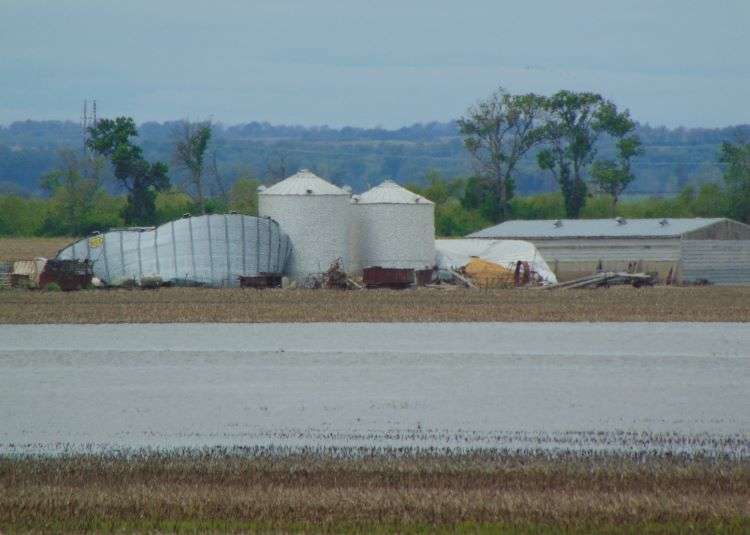
By BRENT MARTIN
St. Joseph Post
Northwest Missouri farmers are hoping for a better year in 2020.
Dylan Rosier, who farms near Mound City, says flooding last year didn’t affect his farm much, but had an overall negative impact on the northwest Missouri farm economy.
“It was just kind of a drag on the whole outlook for whole the year. I mean, it was just hard to get around and the loss of property and the destruction was just hard for people to deal with, I think,” Rosier tells St. Joseph Post.
Rosier says farmers are hoping for more of a normal year this year, though worries about flooding persists, especially with so many Missouri River levees still needing repair.
A bright spot, according to Rosier, is resolving some trade issues with passage of the Mexico-Canada agreement and reaching a partial trade deal with China.
“Obviously, we have yet to see the outcome of those yet, but it definitely seems like we’re taking steps in the right direction,” Rosier says.
Rosier is a member of the District One Missouri Corn Board as is Ryan Meyerkorth, who farms in the Rock Port area, near the Missouri River. Meyerkorth says recovery is coming along slowly, on a piece by piece basis.
“Because there is just so much devastation,” Meyerkorth tells St. Joseph Post. “People are still out of their homes. People cannot access their farms, because they’re still under water. But, at the same time, there are recovery efforts happening with levees being repaired; a few roads starting to be repaired, but that’s hopeful to be coming up in 2020 for us.”
Meyerkorth says flooding took out half his farm last year. He expects a quarter of it to remain out of production this year, due to the uncertainty of flood protection with several levees still needing repairs.
“So, we’re still going to have a quarter of the land on my personal farm that we’re not going to be able to farm next year, just because the levees aren’t even touched yet or being worked on,” Meyerkorth says. “So, we’re seeing a step forward, but we’re not going to be back whole.”
Meyerkorth says some prime Missouri River bottom ground might be out of production permanently, because floodwaters left 10-to-12 feet of sand on top of the land.
Both Meyerkorth and Rosier say the entire northwest Missouri region took a big hit from flooding, especially when floodwaters in southwest Iowa forced the closing of Interstate 29 between St. Joseph and Omaha from around mid-March to mid-June.
Both say farmers remain optimistic, despite coming off a difficult year.








